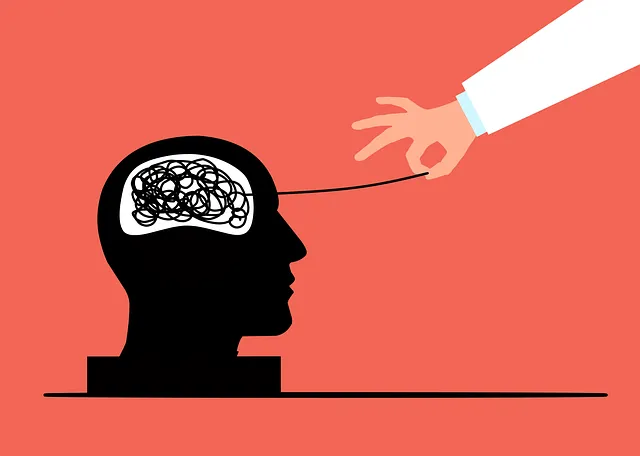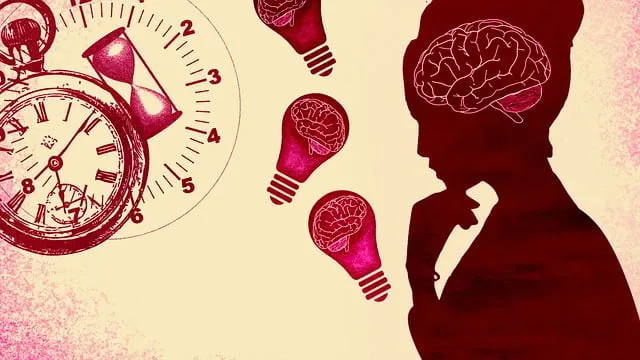The Centennial Kaiser Permanente Mental Health Access Center employs a holistic approach to mental wellness, focusing on building resilience through the RFM framework (Resilience, Flexibility, Mastery). They offer evidence-based practices like journaling and safe space discussions, integrating these into traditional therapy. Their tailored programs, including Stress Management Workshops, empower individuals with long-term coping mechanisms for navigating life's challenges, enhancing overall well-being and preventing mental health issues. Regular engagement and data tracking ensure the effectiveness of RFM exercises, refining strategies based on key metrics like satisfaction and journal improvements.
“Resilience is a cornerstone of mental well-being, especially in navigating today’s challenges. The article explores RFM (Resilience, Flexibility, and Mastery) as a transformative approach in healthcare, using the Centennial Kaiser Permanente Mental Health Access Center as a groundbreaking case study. We delve into how their implementation of resilience-building exercises has not only improved patient outcomes but also enhanced long-term mental health. Through strategies and success stories, this piece uncovers the power of RFM in modern mental health care.”
- Understanding RFM and Its Significance in Mental Health Care
- The Centennial Kaiser Permanente Mental Health Access Center: A Case Study
- Implementing Resilience Building Exercises: Strategies and Benefits
- Measuring Success and Long-Term Impact on Patient Wellbeing
Understanding RFM and Its Significance in Mental Health Care

At the Centennial Kaiser Permanente Mental Health Access Center, we recognize that building resilience is a cornerstone of mental wellness. RFM, or Resilience, Flexibility, and Mastery, is a framework designed to empower individuals in navigating life’s challenges with greater ease. This approach focuses on fostering adaptability and self-efficacy, enabling folks to bounce back from setbacks and thrive despite adversity.
By integrating resilience building exercises into our mental health care model, we offer evidence-based practices tailored to enhance emotional agility. Mental wellness journaling, for instance, provides a safe space for individuals to process experiences, cultivate positive thinking, and track personal growth. This proactive approach not only complements traditional therapy but also equips our clients with valuable tools to maintain and improve their mental health in the long term.
The Centennial Kaiser Permanente Mental Health Access Center: A Case Study

The Centennial Kaiser Permanente Mental Health Access Center stands as a shining example of institutional commitment to mental well-being through innovative approaches. This center has successfully integrated various resilience-building exercises and RFM (Risk, Frequency, Motivation) strategies into their comprehensive mental health services. By offering tailored programs, they cater to diverse patient needs, promoting not just short-term relief but also long-lasting resilience against life’s challenges.
The implementation of Stress Management Workshops within the organization is a key aspect of their policy analysis and advocacy for mental health. These workshops, designed with an emphasis on practical communication strategies, empower individuals with coping mechanisms tailored to their unique experiences. Through such initiatives, the center fosters a supportive environment, enabling patients to navigate stress and adversity more effectively.
Implementing Resilience Building Exercises: Strategies and Benefits

Implementing Resilience Building Exercises is a proactive approach to strengthening individuals’ ability to cope with life’s challenges at the Centennial Kaiser Permanente Mental Health Access Center. These exercises are designed to foster mental resilience, enabling folks to navigate through difficult situations with greater poise and adaptability. Strategies may include structured programs focusing on self-awareness exercises, crisis intervention guidance, and teaching effective coping mechanisms.
By incorporating these practices, the access center aims to enhance mental health awareness and promote a sense of empowerment among participants. Regular engagement in resilience-building activities can lead to improved emotional regulation, better stress management, and increased ability to bounce back from setbacks. This, in turn, contributes to overall well-being and can prevent the onset or escalation of mental health issues, similar to how proactive medical care prevents illness.
Measuring Success and Long-Term Impact on Patient Wellbeing

Measuring success and gauging the long-term impact on patient wellbeing is a crucial step in evaluating the effectiveness of RFM exercises at the Centennial Kaiser Permanente Mental Health Access Center. By tracking key metrics, such as patient satisfaction scores, adherence rates to recommended interventions, and improvements in mental wellness journal entries, healthcare providers can identify which aspects of the program are most impactful. This data-driven approach enables them to refine their strategies and tailor support to meet individual needs.
Over time, consistent participation in confidence-boosting exercises and cultural competency training for healthcare providers has been shown to positively influence patient outcomes. Regular mental wellness journaling exercises provide a safe space for patients to express their thoughts and emotions, fostering self-awareness and emotional regulation skills. This increased mindfulness can lead to improved coping mechanisms and enhanced overall mental health, as evidenced by the progressive positive changes in patient journal entries over treatment cycles.
The implementation of RFM (Resilience, Flexibility, and Mastery) exercises, as demonstrated by the successful case study of the Centennial Kaiser Permanente Mental Health Access Center, offers a promising approach to enhancing patient wellbeing. By integrating these strategies into mental health care, healthcare providers can empower individuals to navigate life’s challenges more effectively. Measuring long-term impact is crucial for understanding the holistic benefits of RFM, potentially revolutionizing how we address mental health concerns in today’s digital era.






